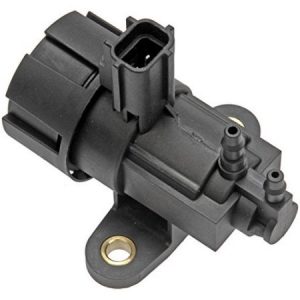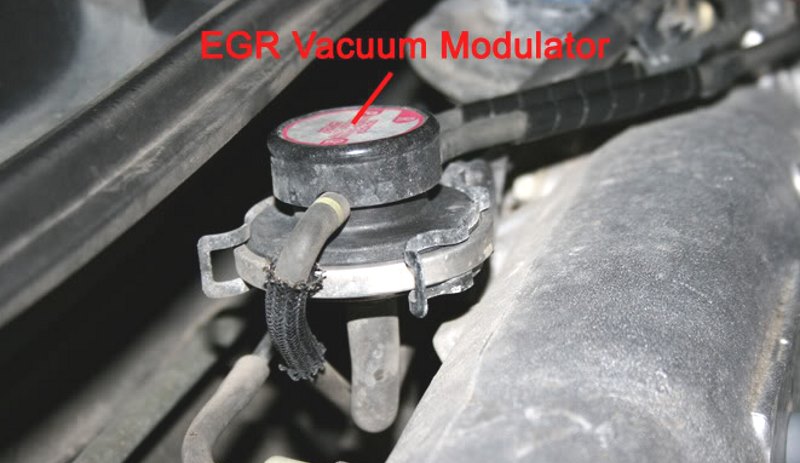What’s an EGR Vacuum Modulator, and Why Should You Care?

Alright, so you’ve ducked in for a quick yarn and asked, “What’s this EGR vacuum modulator thing and why should I even worry about it?” Fair enough! Here’s the deal, without all the jargon. The EGR (Exhaust Gas Recirculation) vacuum modulator is a small but pretty crucial part in your car’s EGR system. Its job? Helps send some of the exhaust gases back through the engine – clever bit of kit that cuts down on nasty emissions coming out your tailpipe. Handy for all those WOF Hamilton checks, and just generally being a good bugger to the environment.
You’ll find these on all sorts of cars we see in the workshop – from the Suzuki Swifts running round Rototuna, to the odd Renault Kangoo coming in from Te Kowhai, right through hybrids from Hillcrest and the trusty old Honda Accord wagons on River Road.
The vacuum modulator is like a little traffic director. Using the vacuum from your intake manifold, it makes sure the EGR system opens at the right moment – not when you’re trying to get up Peachgrove Road with your foot flat but when it won’t mess with your engine’s power. Basically, too much or too little exhaust gas at the wrong time, and things start getting funky under the bonnet.
What Can Go Wrong With The EGR Vacuum Modulator?
With all the stop-start stuff on Ulster Street in the morning, potholes through Frankton, or the backroads out to Morrinsville, stuff just wears out. Especially on those stinkin’ hot summer days when you’re crawling past The Base, or the icy foggy mornings where everything feels a bit sluggish.
A crook vacuum modulator can throw a bit of chaos at your engine. Here’s what we see in the shop pretty often – whether it’s a Mercedes from Tamahere, a Kia Carnival on school run duty in Glenview, or a Mitsubishi Outlander trekking in from Ngaruawahia:
- Sluggish engine or rough idling – That feeling when your Jazz or Camry suddenly feels gutless at Victoria Street lights, or the engine’s shuddering like you’ve been parked up in a thunderstorm. Often means vacuum leaks or the mix isn’t quite right.
- Higher emissions – If that modulator isn’t doing its bit, you’ll spit out more muck from your exhaust. Not flash for the environment, and it could mean your car fails its Warrant of Fitness. Not worth stressing before your WOF Hamilton check.
- Overheating – Without enough exhaust gas recirculating, those temps under the bonnet can get dangerous. We’ve had a Toyota Blade come in from Gordonton that overheated on SH1 after this exact issue. If your temp gauge is climbing, pull over. Don’t risk blowing the head gasket. Double check what to do here: What to do if your car is overheating >
- Check engine light – The classic orange engine symbol. Could be a heap of things, sure, but dodgy EGR components are regular troublemakers.
- Random stalling or high fuel use – Whether you’ve got a Euro import or a good old Corolla, rough EGR control can give you poor fuel economy, stalling, or high idle revs that drive you mad in Hamilton traffic.
Heaps of these symptoms pop up gradually, but it’s amazing how much smoother your car runs once you get it sorted. More than once we’ve had folks from Huntly or Cambridge in the shop relieved to get their fuel bill down after a quick EGR modulator swap.
EGR Vacuum Modulator Replacement & Diagnostics in Hamilton
Think your EGR vacuum modulator might be giving you grief? No dramas. One of our techs can quickly check things over and let you know if that’s the culprit or if something else is going on. If you need a replacement, we’ll source the right part (doesn’t matter if it’s a European van or a Nissan Leaf) and get you back on the road.
Swapping out a faulty EGR vacuum modulator is straightforward for us – and honestly, the boost in engine smoothness, lower emissions, and better fuel economy? Worth every cent if you like trouble-free motoring in and out of Hamilton.
If you reckon your car’s not running quite right, or just want to stay on top of things before your next car service Hamilton, give us a bell. From EGR sensors and vacuum bits to full-on hybrid repair, our crew’s sorted plenty of quirky NZ car problems over the years.

